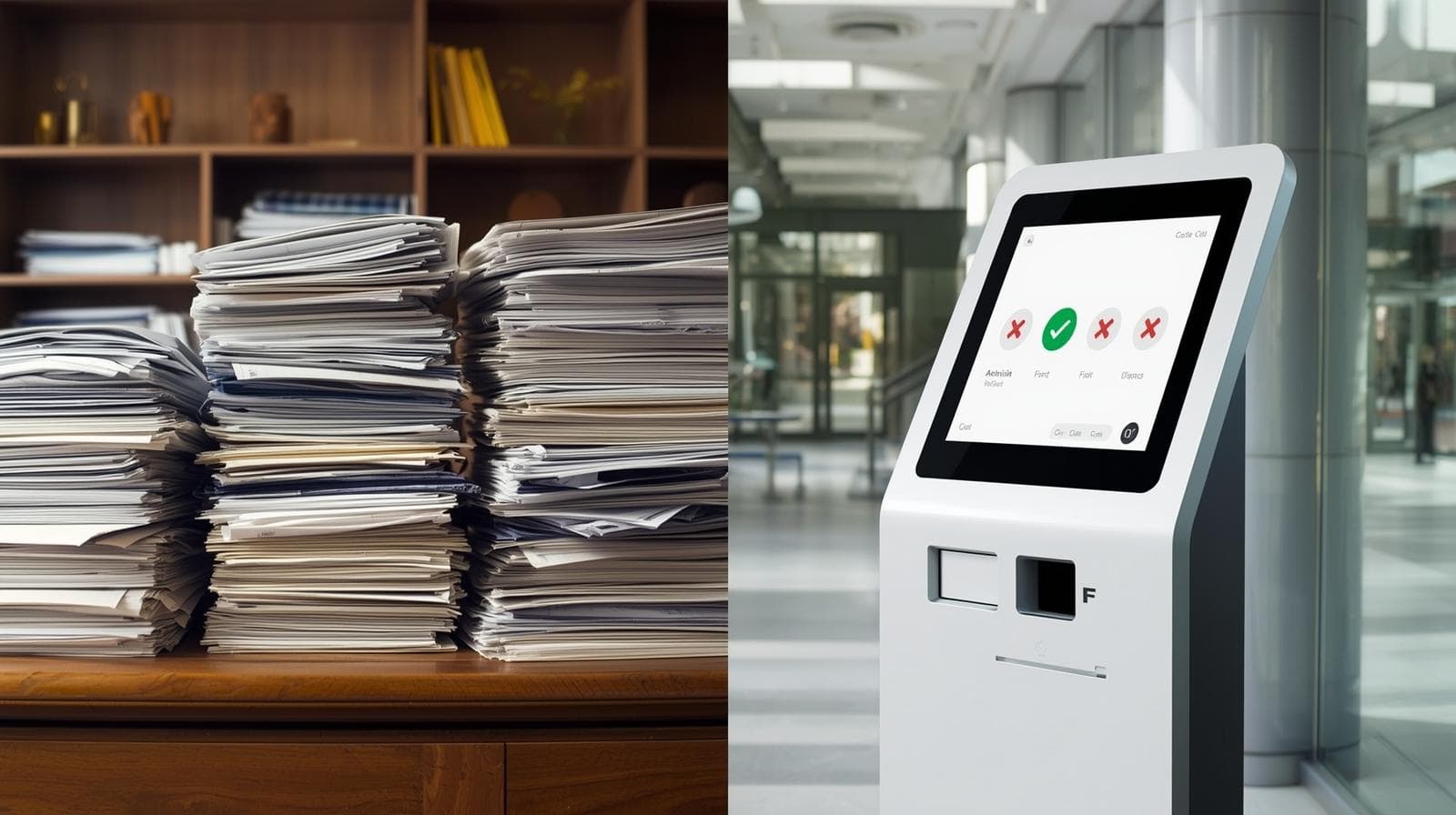
Colleges Still Using Manual Admission Forms Will Vanish by 2032
In a world where every industry has transitioned to digital-first experiences, some colleges still rely on paper admission forms, handwritten entries, and physical document submissions. While this system once worked, it is rapidly becoming obsolete. By 2032, institutions refusing to modernize risk losing students, credibility, and operational efficiency. Modern learners expect fast, seamless, and mobile-friendly admission experiences — not outdated manual paperwork.
Key Benefits
- 1
Students Demand Digital Convenience
- 2
Manual Processes Delay Results
- 3
Massive Risk of Data Loss & Errors
- 4
No Real-Time Tracking
- 5
Higher Operational Costs
- 6
Weak Brand Image
- 7
Competition Will Leave Them Behind
Students Demand Digital Convenience
Gen-Z and Gen-Alpha students refuse long queues, physical form purchases, and campus visits just to apply. Online, AI-assisted forms provide a frictionless application journey — anytime, anywhere.
Manual Processes Delay Results
Paper-based systems slow down evaluation, verification, follow-ups, and admissions. In contrast, digital systems allow auto-screening, automated reminders, and real-time updates — accelerating decisions.
Massive Risk of Data Loss & Errors
Manual forms are prone to misplacement, mis-entry, and damage. Digital systems securely store student data with real-time backups, encrypted access, and automated validation checks.
No Real-Time Tracking
With paper forms, there's no visibility into lead status, inquiry sources, or conversion data. Digital dashboards offer real-time insights — empowering quick decisions and targeted improvements.
Higher Operational Costs
Paper, printing, storage, manpower — manual admissions are expensive. Automation drastically reduces administrative costs and resource waste.
Weak Brand Image
Prospective students judge colleges based on first impressions. Manual forms signal outdated systems, while digital platforms reflect innovation and professionalism.
Competition Will Leave Them Behind
Modern institutions offering digital admissions gain faster conversions, better student experience, and stronger automation workflows — making manual-form colleges irrelevant.
Conclusion
The era of manual admission forms is ending. Colleges that refuse to digitize will struggle to survive in the modern education landscape — losing applicants, credibility, and revenue. The future belongs to institutions that adopt smart ERP-based admission systems, ensuring speed, accuracy, and convenience for students and staff. With solutions like Vighnotech's Admission & Student Management Module, colleges can transition from outdated manual workflows to powerful, automated systems designed for the next generation of learners.